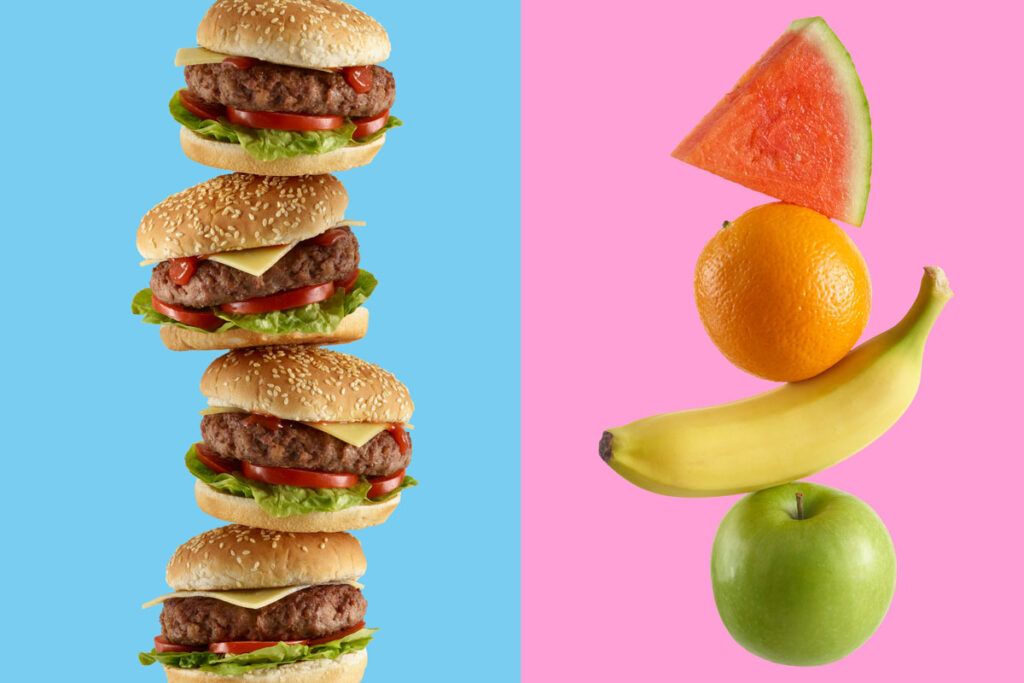Cholesterol is a fat type that your body naturally produces, and lipoproteins carry it in your blood. It is a crucial building block for cells and hormones. It is essential for good health, but too much can cause unwanted health conditions.
While genetics and family history may play a role in cholesterol levels, diet and lifestyle factors can have a significant impact.
Evaluating your diet is one of the first things you can address to manage cholesterol levels. This article introduces foods that research considers the worst for managing cholesterol levels, what to eat instead, and lifestyle adaptations to consider.
About cholesterol and diet

There are different cholesterol types. One type is LDL (low-density lipoprotein), often referred to as ”bad” cholesterol because it can contribute to plaque buildup. Another main type is HDL (high-density lipoprotein), often called the ”good” cholesterol because it may help remove excess cholesterol from the blood and arteries.
If a doctor advises you have high cholesterol levels or too much LDL compared with HDL, you may be able to improve this by implementing diet and lifestyle strategies.
Yet sometimes, diet and lifestyle may not be enough, so it’s important to speak with your doctor or healthcare professional for the best approach. For example, they may recommend medications, such as statins, nicotinic acid, or bile acid sequestrants.
Foods to avoid for high cholesterol
Some foods contain cholesterol, and too much cholesterol from your diet can contribute to plaque buildup in your arteries. In turn, this can cause your arteries to narrow, a condition called atherosclerosis, and an increased risk of heart disease.
In particular, foods high in saturated and trans fats may increase cholesterol levels.
In 2017, the American Heart Association (AHA) recommended replacing saturated and trans fats with unsaturated fats, especially polyunsaturated fats, to lower LDL levels and reduce heart disease risk.
Therefore, foods to avoid or limit include:
- Fatty and processed meats: Processed meat options, like hot dogs, salami, ham, nuggets, and bacon, may be tasty and convenient, but they may not help maintain optimal cholesterol levels.
- Full-fat dairy products: To keep your cholesterol manageable, you may consider avoiding high fat dairy products, like whipping or double cream, full-fat cheese, and ice cream.
- Baked goods: Pastries, muffins, and cakes often have high saturated and trans fats content.
- Fried foods: Like the other foods on this list, fries, chips, fish fingers, and deep-fried sweets, like churros, are also high in saturated and trans fats.
- Egg yolks: Even though eggs can be healthy, a 2021 study that included over half a million Americans over the age of 50 found a link between whole eggs and higher cholesterol levels, cancer, and heart disease. They did not find the same link with only egg whites.
Foods to help lower cholesterol
As highlighted by the AHA in 2019, eating a heart-healthy diet rich in fiber, fruits, vegetables, and lean protein can help lower your LDL cholesterol and heart disease risk.
Here are some of the best foods to eat for high cholesterol:
- Fruits and vegetables: Fruits and vegetables are high in fiber, a carbohydrate that can help lower cholesterol levels.
- Whole grains: Whole grains like oats, quinoa, and brown rice are also high in fiber.
- Lean protein: Opt for lean proteins like chicken, fish, beans, and lentils instead of fatty meats. This allows you to reach your daily protein goals without as many cholesterol-raising saturated fats.
- Nuts and seeds: Nuts and seeds are high in healthy fats, fiber, and protein and may lower cholesterol levels.
- Plant-based oils: Use plant-based oils high in monounsaturated fats, like walnut, avocado, and canola oil, instead of butter or margarine. According to an AHA paper from 2019, this can help reduce cholesterol levels.
- Plant sterols or stanols: Manufacturers sometimes fortify certain margarine and cereals with natural compounds called plant sterols or stanols. Older research from 2009 suggests that these may significantly reduce LDL cholesterol levels by blocking the absorption of cholesterol in the intestines.
- Fatty fish: A 2022 review states that omega-3 fats, found in fatty fish like salmon, mackerel, sardines, and trout, support healthy cholesterol levels.
- Probiotics: You can find probiotics in foods like yogurt, kimchi, and kombucha. In addition to supporting your healthy gut bacteria, 2015 research suggests they may improve your cholesterol levels, though more studies are needed to confirm this.
To successfully manage cholesterol levels, you can aim to include these foods as part of a doctor-recommended lifestyle strategy.
If you need help covering the cost of medications, the free Optum Perks Discount Card could help you save up to 80% on prescription drugs. Follow the links on drug names for savings on that medication, or search for a specific drug here.
